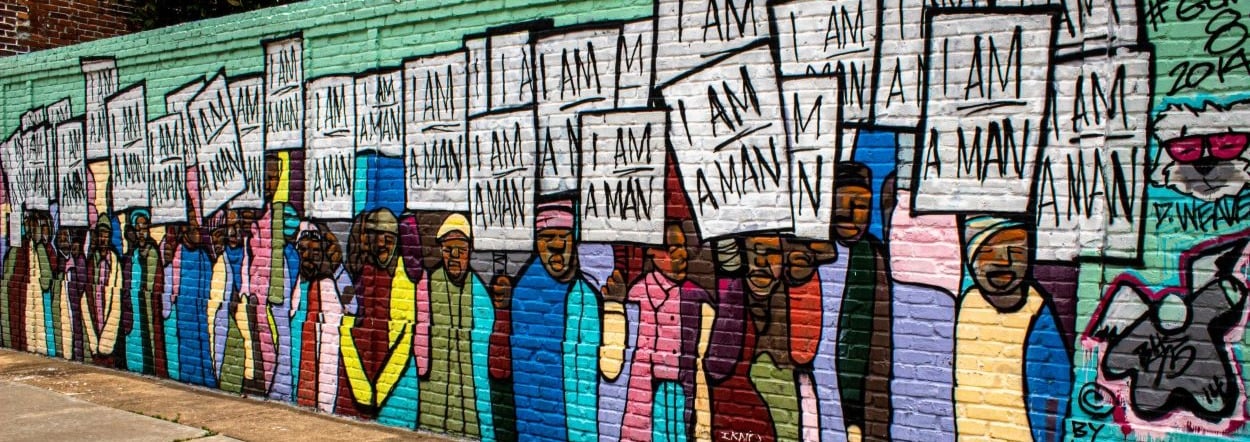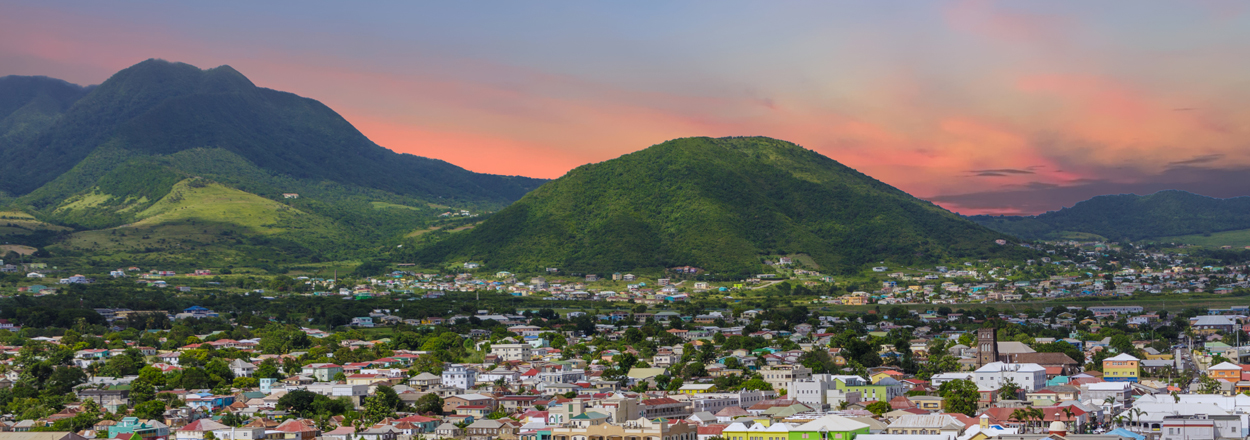It’s no secret, Black history in America isn’t pretty. Instead, from the moment slavery arrived in the States in 1619 to the long and painful battle that led to the eventual passing of the Civil Rights Act in 1964, it’s been a story of bravery, resilience and, finally, progress. Black history in America is a tale of triumph over adversity, and while we still have a way to go in terms of achieving true equality, the contributions of Black people and communities throughout the years have helped to shape some of the nation’s most beloved destinations. If you’re interested in learning more about how Black people played an integral role in establishing modern American culture, try visiting one of these action-packed cities for a lesson in history, tradition and identity.
Memphis, TN
Home to the National Civil Rights Museum, Dr. Martin Luther King Jr. Reflection Park, the “I Am a Man” Plaza, Memphis Heritage Trail and so much more, Memphis, Tennessee is a must-visit for any traveler with an interest in Black history or culture. Famously known as the “Birthplace of Rock N Roll,” here, visitors can revel in walking the same streets as musical greats including the likes of B.B. King, W.C. Handy, Isaac Hayes and Hank Crawford. Continuing its artsy legacy, travelers can catch live musical performances at local bars and restaurants on any given day of the week or they can stop by Hattiloo Theatre, the area’s only Black theatre that specializes in a variety of plays and musicals. By way of food, Memphis delights with its mouth-watering barbecue alongside a wide selection of Black-owned restaurants where visitors can expect to sample cultural favorites like soul food and fried chicken and unexpected flavors like baked goods and modern fare.
To discover the city with the help of an expert, consider booking a tour through A Tour of Possibilities, LLC, a local, Black-owned tour company helmed by Carolyn Michael-Banks.
Washington, D.C.
A fabulous option for those hoping to pack in lots of sightseeing without breaking the bank, Washington, D.C., is one of the nation’s best destinations for budget travelers due to its sheer abundance of free — and fun! — things to do. In fact, America’s capital city has over 50 free museums and attractions for visitors to enjoy among which is the Smithsonian National Museum of African American History and Culture. On the cusp of celebrating its 10th year, the Museum of African American History and Culture is still relatively new in terms of the D.C. museum scene, boasting eight stories jam-packed with informational exhibits on African American life, art, history and culture from present day to the African Diaspora. For even more museum-going excitement, visitors can head down the street to the Smithsonian National Museum of African Art to peruse the building’s collection of traditional and contemporary African art or stop by the Smithsonian’s National Air and Space Museum to learn about prominent African American figures in the aviation and space fields.
Another nearby destination with no shortage of Black history is Alexandria, a city just across the Potomac River where travelers can enjoy a guided tour with Manumission Tour Company, a local organization dedicated to telling the stories of local Africans and African Americans.
New York, NY
From the Bronx and Brooklyn to Queens and Harlem, Black history has played an important role in shaping many of the vibrant New York City neighborhoods we know and love today. And while the influence of Black culture is evident across much of this world-famous city, in other parts it’s hidden, including Central Park, The Big Apple’s sprawling greenspace. Unbeknownst to the average traveler, The People’s Park was once host to Seneca Village, a bustling African American community founded in 1825 by free Black people. The active community thrived until residents were forced out in 1857 housing schools, churches and even cemeteries. To ensure the story of Seneca Village isn’t lost to history, visitors can travel back in time when they take a moment to read the various commemorative plaques throughout Central Park or when they purchase admission to The Met which has an ongoing exhibit called “Before Yesterday We Could Fly: An Afrofuturist Period Room.” Of course, New York City is also home to several museums and monuments dedicated to Black history including the Caribbean Cultural Center African Diaspora Institute, Louis Armstrong House Museum, The Malcolm X and Dr. Betty Shabazz Memorial & Educational Center, Museum of Contemporary African Diasporan Art and more.
For guided tours told through a Black lens, we recommend checking out Inside Out Tours and JoJo’s Ventures, two locally-run tour operators with a passion for sharing Black history and culture.
Milwaukee, WI
An underrated gem in America’s Midwest, Milwaukee, WI, has lots to offer in terms of Black history and culture. Referred to as “Cream City” thanks to its cream-colored brick architecture, Milwaukee is home to America’s Black Holocaust Museum, a museum dedicated to preserving and sharing the history of African Americans who endured slavery and battled injustice throughout the years. Similarly, the area is also home to the Wisconsin Black Historical Society & Museum where visitors can explore engaging exhibits and participate in educational programming dedicated to sharing notable ways in which Black individuals have contributed to the success of the Dairy State. In the city’s Harambee neighborhood, visitors will find the Dietz Home/Casablanca Hotel, an ornately-decorated century-old house that acted as a place to stay for touring Black jazz artists — including Louis Armstrong, Cab Calloway, Duke Ellington, Sarah Vaughn and Billie Holiday — in the 1930s.
Today, Milwaukee touts a variety of Black-owned businesses, and visitors hoping to shop local during their stay can head over to Visit Milwaukee’s website to browse the destination marketing organization’s list of vetted shops, restaurants and makers.
New Orleans, LA
From music and food to celebrations and religion, there’s no doubt Black culture played a significant role in shaping the colorful tapestry and authentic vibes The Big Easy effortlessly emits today. Just footsteps from the French Quarter sits what was formerly Congo Square, a patch of land in Armstrong Park where hundreds of African slaves once gathered to trade goods, play and socialize. Even then, music was a huge part of African life, and historical documents point to the significance of the various instruments and dances of the times, recognizing them as formative for American music as a whole. Similarly, The Crescent City is widely recognized as the birthplace of jazz, a reputation Black musicians have contributed to since the late 1800s. As far as Mardi Gras goes, many traditions have African-American roots including the Fat Tuesday “skull gangs,” local street parties and the Krewe — merriment-goers donning grass skirts and hand-painted coconuts — of the famed Zulu parade.
Other noteworthy stops for fans of history include the African American Museum, the Backstreet Cultural Museum, House of Dance & Feathers and Le Musee de f.p.c.






Delores P | 02/19/25 - 03:49 PM
Thank you for the article and recommended museums, communities, and cities for rich African American history.
| reply